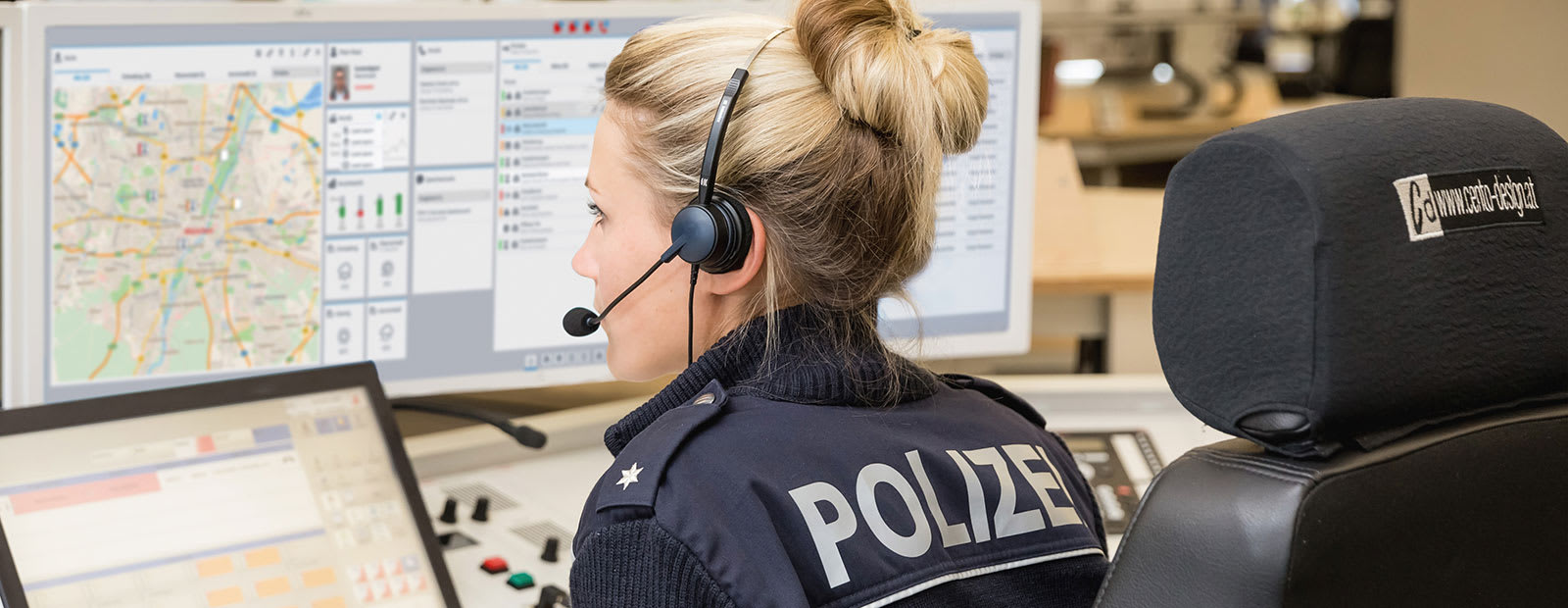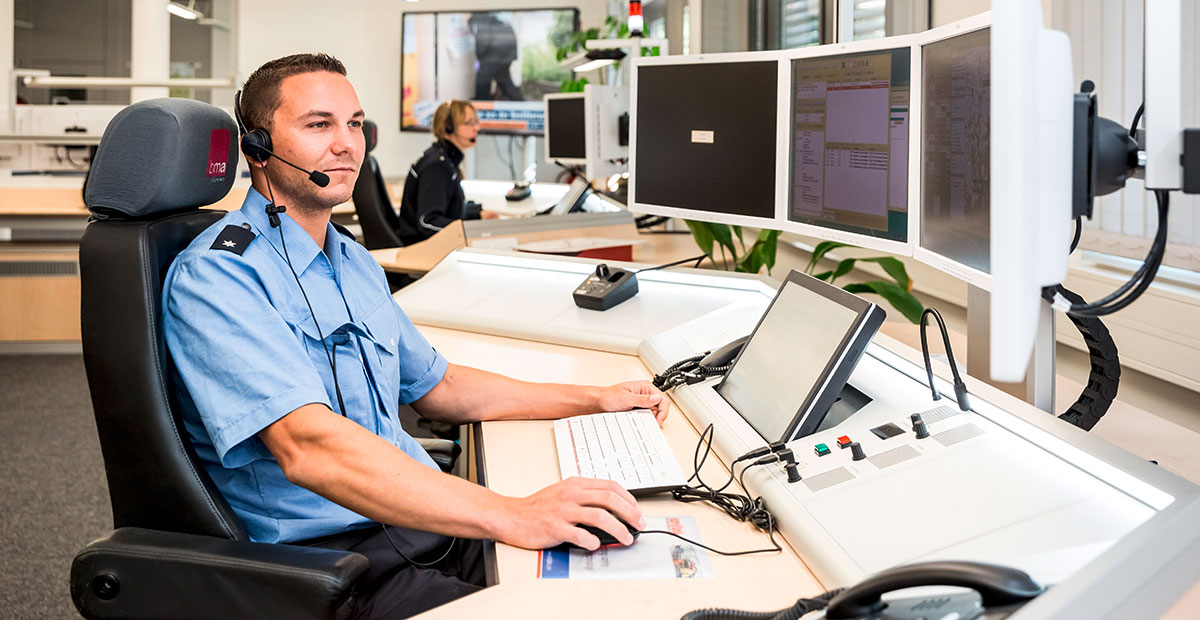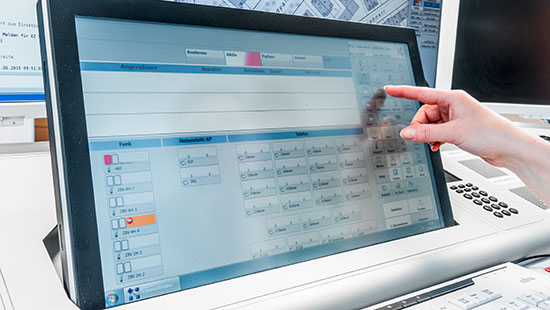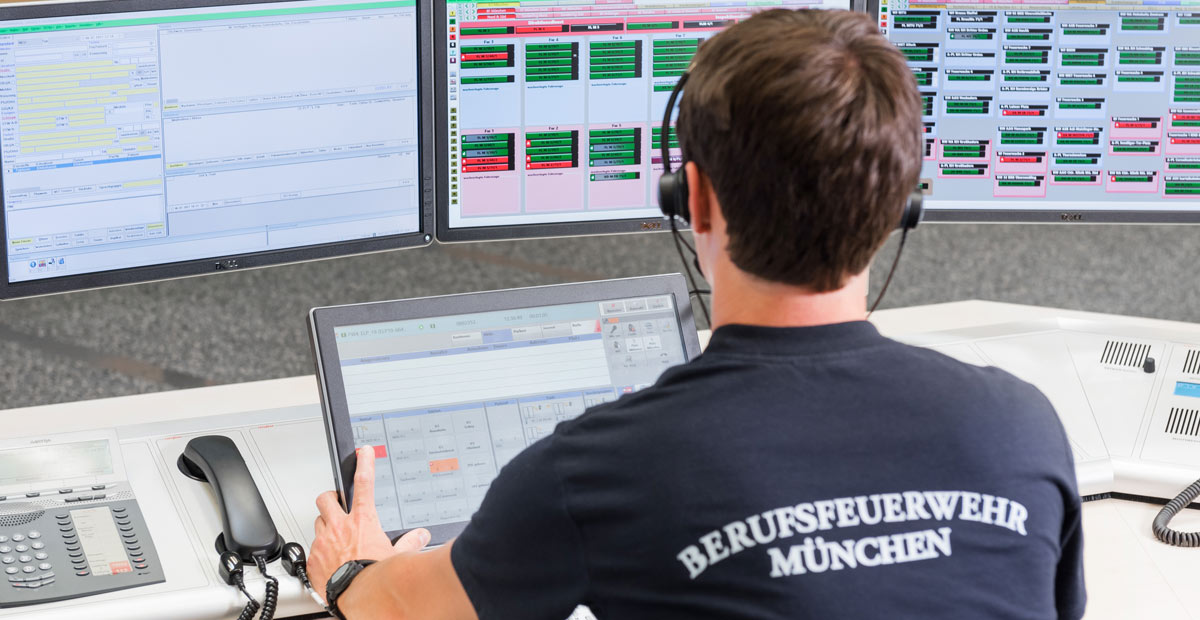


IDDS UCiP (Integrated Digital Dispatching System – Unified Communications IP) is a fully integrated platform for radio, emergency call handling, and telephony designed for control centers. Whether for single-site centers or networked organizations in fire services, EMS, police, or industrial and corporate fire brigades – IDDS UCiP is your unified communication solution.

![]()
IDDS UCiP is built entirely on IP and Voice-over-IP (VoIP) technology. Communication between multiple sites is enabled through a robust IP infrastructure with appropriate Quality of Service (VPN).

By interconnecting multiple control centers into a unified communication network, IDDS UCiP enables transparent access to all communication resources — including digital and analog radio, emergency call lines, and telephony — regardless of the physical location. This ensures efficient, flexible coordination across different sites and scenarios. Thanks to its decentralized and scalable architecture, system availability and fault tolerance are significantly enhanced.
In rare cases where operators in a control center can’t answer calls quickly enough, IDDS UCiP steps in automatically. If, for example, an emergency call isn’t answered within 20 seconds, it is immediately routed to other centers in the network and marked as an “overflow call”. There, it can be picked up without delay — ensuring every call gets the fastest possible response.
IDDS UCiP is designed with a strict no single point of failure (SPOF) approach. Even without redundant components, the system provides high availability at each individual site and across the entire network. For point-to-point (PTP) communication — such as emergency call handling — VoIP audio is transmitted directly from the gateway to the operator workstation. This eliminates the need for a third-party component like a core switch or crossbar, maximizing reliability where it matters most.

Spatial independence of operators
If a control center must be evacuated due to unforeseen circumstances (e.g. bomb threat), its full operation can be taken over by another center in the network — seamlessly and without functional loss. Dispatchers from the evacuated site can continue their duties from the backup location.
IDDS UCiP connects to a wide range of digital radio networks via the eurofunk-developed TETRA Gateway — supporting standards like BDBOS, Airbus, Hytera, Motorola, and TETRA FRT (Motorola & SEPURA).
Thanks to built-in redundancy, operations continue seamlessly even if a gateway fails. With dynamic TCS assignment, available TETRA resources are used optimally. Combined with intelligent fallback solutions, your control center remains reachable at all times.
Fast, reliable emergency call handling is at the heart of every control center. With IDDS UCiP, incoming calls are intelligently prioritized, visualized, and managed according to your specific configurations.
Features like eCall, AML (Advanced Mobile Location), and support for emergency location standards (TR emergency location data) are already built-in — and the platform is fully ready for NG112 capabilities such as NG eCall and Real-Time Text (RTT).
AI-powered features like live transcription and real-time translation support call takers under pressure and improve response times — especially in multilingual or high-stress situations.
Additional tools include:

IDDS UCiP can be integrated into any third-party monitoring solution — or use eurofunk active monitoring (eAM) for proactive, predictive system checks. This ensures uninterrupted operations and minimizes downtime.
IDDS UCiP acts as a powerful bridge between your communications network and operational systems.
It offers:
A centralized admin console allows authorized personnel to configure and manage the system easily. Master/slave database functions ensure data security and system integrity, even during critical operations or infrastructure changes.
User roles and tenant configurations are fully supported. Administrators can assign custom roles and permissions to ensure secure, role-based access across the platform.
To meet the needs of international clients, IDDS UCiP offers: